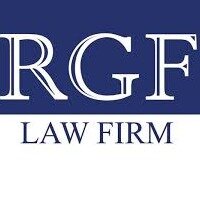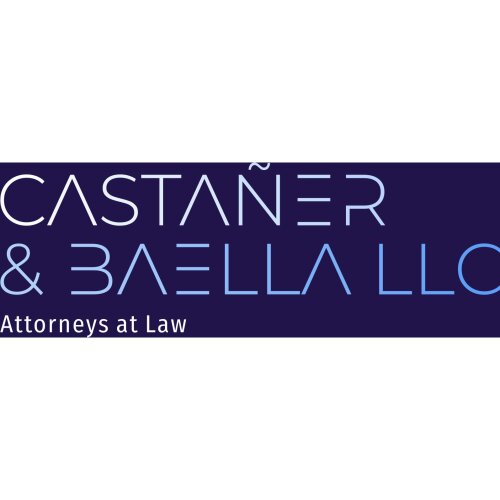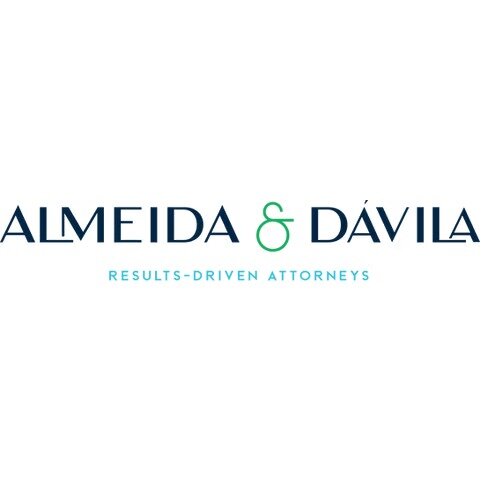Best Toxic Tort Lawyers in Puerto Rico
Share your needs with us, get contacted by law firms.
Free. Takes 2 min.
Or refine your search by selecting a city:
List of the best lawyers in Puerto Rico
About Toxic Tort Law in Puerto Rico
Toxic tort refers to a legal claim for harm caused by exposure to toxic substances. In Puerto Rico, individuals who have suffered injuries due to exposure to toxic chemicals or hazardous materials may seek compensation through toxic tort lawsuits. These cases can be complex and often require the expertise of a knowledgeable attorney.
Why You May Need a Lawyer
There are several situations where you may need a lawyer to help you with a toxic tort case. These include proving the link between your illness and exposure to toxic substances, navigating Puerto Rico's legal system, and negotiating with insurance companies and responsible parties. An experienced attorney can provide legal guidance, protect your rights, and help you recover compensation for your injuries.
Local Laws Overview
In Puerto Rico, toxic tort cases are governed by both federal and local laws. The Puerto Rico Environmental Quality Board (EQB) is responsible for regulating the use and disposal of hazardous substances on the island. Additionally, Puerto Rico's Civil Code and common law principles apply to toxic tort claims, including the requirement to prove causation and damages. It is crucial to consult with a lawyer familiar with Puerto Rico's legal framework to navigate your toxic tort case successfully.
Frequently Asked Questions
1. What is a toxic tort case?
A toxic tort case is a legal claim for harm caused by exposure to toxic chemicals or hazardous materials.
2. How do I prove a toxic tort case in Puerto Rico?
In Puerto Rico, you must establish that your injury was caused by exposure to toxic substances and demonstrate the extent of your damages.
3. Who can be held liable in a toxic tort case?
Various parties, including manufacturers, distributors, and property owners, can be held liable for injuries caused by exposure to toxic substances.
4. What compensation can I recover in a toxic tort case?
You may be able to recover compensation for medical expenses, lost wages, pain and suffering, and other damages related to your injuries.
5. What is the statute of limitations for filing a toxic tort case in Puerto Rico?
The statute of limitations for toxic tort cases in Puerto Rico is generally three years from the date of injury or discovery of the harm.
6. Can I file a class action suit for a toxic tort case?
Class action suits are possible in toxic tort cases in Puerto Rico, where multiple individuals have been harmed by the same toxic exposure.
7. Do I need to prove negligence in a toxic tort case?
In some toxic tort cases, you may need to prove that the responsible party acted negligently in exposing you to toxic substances.
8. Is there a cap on damages in toxic tort cases in Puerto Rico?
Puerto Rico does not have a statutory cap on damages in toxic tort cases, but the amount of compensation you can recover will depend on the specific circumstances of your case.
9. Can I recover punitive damages in a toxic tort case?
Punitive damages may be awarded in toxic tort cases in Puerto Rico if the responsible party's conduct was particularly egregious or intentional.
10. How can a lawyer help me with my toxic tort case?
A lawyer can assist you in gathering evidence, navigating the legal process, negotiating with insurance companies, and advocating for your rights in court.
Additional Resources
For more information on toxic tort law in Puerto Rico, you can contact the Puerto Rico Environmental Quality Board or consult with organizations such as the Puerto Rico Bar Association or local legal aid clinics.
Next Steps
If you believe you have a toxic tort case in Puerto Rico, it is essential to consult with an experienced lawyer who specializes in this area of law. They can evaluate your case, guide you through the legal process, and help you pursue the compensation you deserve for your injuries.
Lawzana helps you find the best lawyers and law firms in Puerto Rico through a curated and pre-screened list of qualified legal professionals. Our platform offers rankings and detailed profiles of attorneys and law firms, allowing you to compare based on practice areas, including Toxic Tort, experience, and client feedback.
Each profile includes a description of the firm's areas of practice, client reviews, team members and partners, year of establishment, spoken languages, office locations, contact information, social media presence, and any published articles or resources. Most firms on our platform speak English and are experienced in both local and international legal matters.
Get a quote from top-rated law firms in Puerto Rico — quickly, securely, and without unnecessary hassle.
Disclaimer:
The information provided on this page is for general informational purposes only and does not constitute legal advice. While we strive to ensure the accuracy and relevance of the content, legal information may change over time, and interpretations of the law can vary. You should always consult with a qualified legal professional for advice specific to your situation.
We disclaim all liability for actions taken or not taken based on the content of this page. If you believe any information is incorrect or outdated, please contact us, and we will review and update it where appropriate.
Browse toxic tort law firms by city in Puerto Rico
Refine your search by selecting a city.










